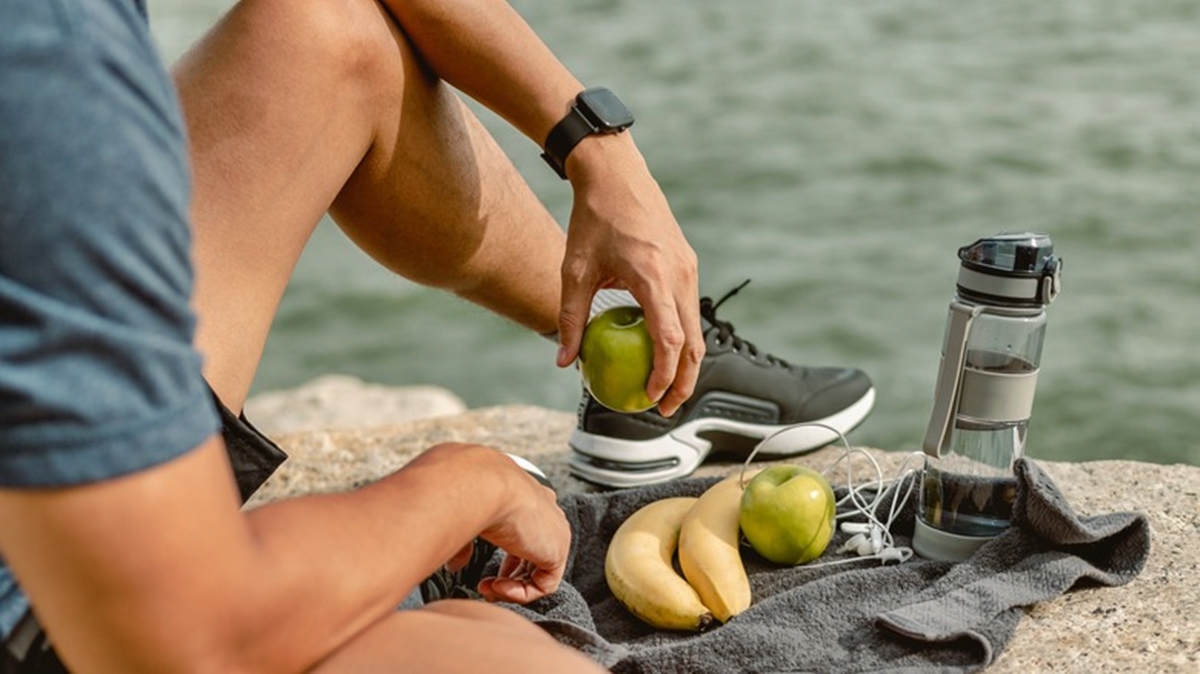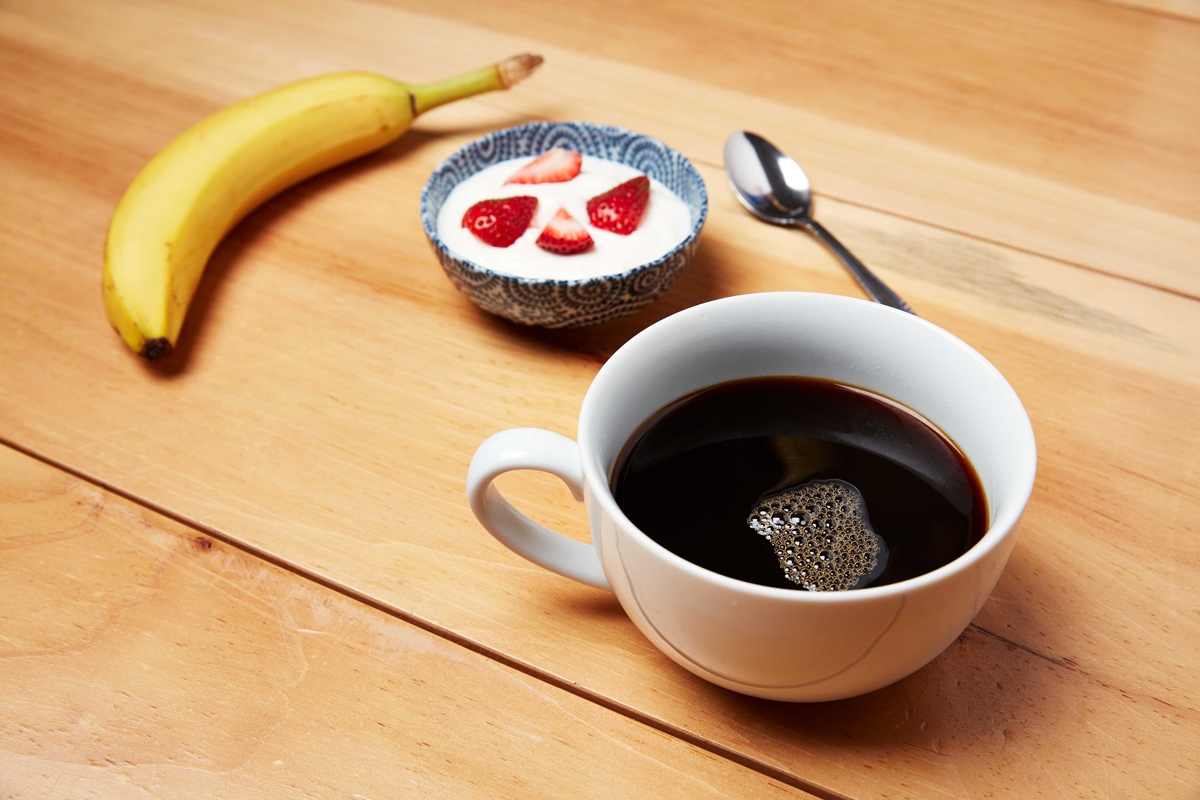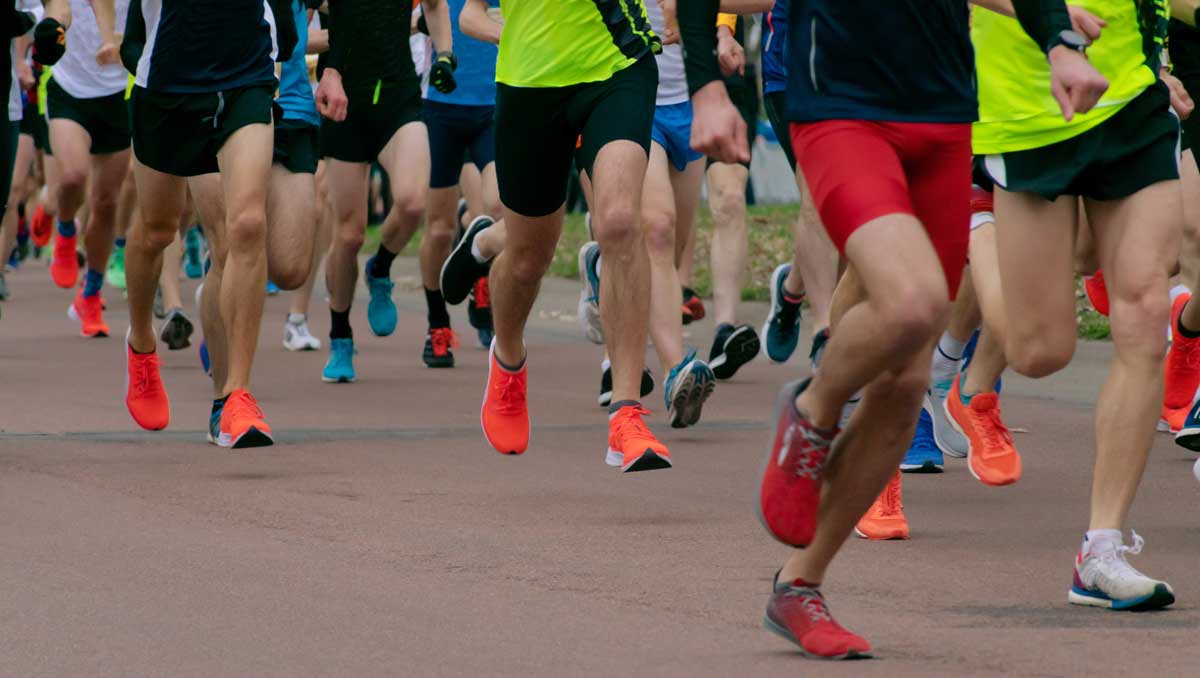

Featured
What Should I Eat After 5K Run
Modified: August 18, 2023
Looking for post-5K run meal ideas? Discover a variety of delicious and nutritious options in our featured article on what to eat after a 5K run.
Introduction
Welcome to the world of running! Participating in a 5K run is a fantastic achievement, whether you’re a seasoned runner or just starting out on your fitness journey. As you push yourself during this exhilarating race, your body works hard to deliver oxygen and energy to your muscles. It’s essential to replenish and restore your body after the run to support your recovery and overall well-being.
Post-run nutrition plays a crucial role in refueling your body, aiding muscle repair, and optimizing recovery. The foods you consume following a 5K run can make a significant difference in how your body functions and recovers. By providing your body with the right nutrients, you can enhance your performance, reduce muscle soreness, and prevent injuries.
In this article, we will explore the importance of post-run nutrition and discuss the optimal macronutrient breakdown for your post-5K meals. We will delve into the role of carbohydrates in replenishing energy stores, the importance of protein for muscle recovery and repair, the inclusion of healthy fats in your diet, and the significance of hydration for rehydration and electrolyte balance.
Furthermore, we will provide you with some practical examples of post-5K run meals and snacks that are delicious, nutritious, and easy to prepare. Whether you prefer a quick snack or a hearty meal, we have got you covered with a variety of options to suit your taste and dietary preferences.
So, join us on this journey to discover the power of post-run nutrition in optimizing your recovery and helping you reach your running goals. Let’s dive in and explore the world of nourishment after a 5K run!
Importance of Post-Run Nutrition
After completing a 5K run, your body undergoes significant changes and experiences physical stress. Engaging in intense exercise depletes your glycogen stores, breaks down muscle fibers, and leads to fluid loss through sweat. It’s crucial to provide your body with the necessary nutrients to replenish energy, promote muscle recovery, and support overall health.
One of the primary goals of post-run nutrition is to replenish glycogen stores in your muscles and liver. Glycogen is the primary fuel source for your body during exercise, and replenishing glycogen levels after a run helps prepare you for future workouts. Consuming carbohydrates post-run helps kickstart the replenishment process and promotes optimal recovery.
Another crucial component of post-run nutrition is protein. During a 5K run, your muscles undergo micro-tears, which require repair and recovery. Protein acts as the building blocks for muscle repair and helps to rebuild and strengthen the damaged muscle fibers. Consuming protein-rich foods after your run aids in optimal muscle recovery and prevents muscle breakdown.
Fats are an essential part of a balanced post-run meal. While carbohydrates and protein take center stage, healthy fats contribute to overall health and satisfaction. Incorporating sources of healthy fats, such as avocados or nuts, in your post-run meal can provide essential nutrients, support hormone production, and aid in nutrient absorption.
Hydration is vital before, during, and especially after a 5K run. Adequate fluid intake helps rehydrate your body and restore electrolyte balance. Sweating during exercise leads to fluid loss and electrolyte depletion, which can result in muscle cramps, fatigue, and diminished performance. Replenishing fluids is essential for optimal recovery and overall well-being.
By prioritizing post-run nutrition, you give your body the tools it needs to recover more efficiently and improve your performance for future workouts. Neglecting proper nutrition after a run can lead to prolonged muscle soreness, fatigue, and delayed recovery.
Stay tuned as we explore the macronutrient breakdown for post-5K nutrition, and discover delicious and nourishing meal ideas to support your post-run recovery!
Macronutrient Breakdown
When it comes to post-5K run nutrition, achieving the right macronutrient balance is crucial for optimal recovery. The three main macronutrients – carbohydrates, protein, and fats – play distinct roles in supporting your body’s recovery process.
Carbohydrates should make up the majority of your post-run meal. They provide the necessary energy to replenish glycogen stores in your muscles and liver. Opt for complex carbohydrates with a low glycemic index, such as whole grains, sweet potatoes, or quinoa. These carbohydrates are digested and absorbed more slowly, providing a steady release of energy and preventing blood sugar spikes. Including carbohydrates in your post-run meal helps restore energy levels and aids in muscle recovery.
Protein is essential for muscle repair and recovery after intense exercise. It helps repair the micro-tears in your muscles and promotes muscle growth and strength. Aim to include a source of lean protein, such as grilled chicken, tofu, or Greek yogurt, in your post-5K meal. This will provide your body with the necessary building blocks to rebuild and strengthen the damaged muscle fibers.
Including healthy fats in your post-run meal is also important for overall health and satisfaction. Healthy fats provide essential fatty acids, support hormone production, and aid in nutrient absorption. Opt for sources of unsaturated fats, such as avocados, nuts, or olive oil, to incorporate into your meal. These fats provide satiety and contribute to the overall balance of your post-run nutrition.
Remember to hydrate properly to support your body’s recovery process. Replenishing fluids after a 5K run is essential to restore the electrolyte balance and prevent dehydration. Water is typically sufficient for rehydration, but if you’ve been sweating heavily or running in hot weather, you may need to replenish electrolytes with a sports drink or coconut water.
By achieving the right macronutrient balance in your post-run meal, you provide your body with the necessary nutrients to optimize recovery, rebuild muscles, and restore energy levels. Stay tuned as we explore some delicious post-5K run meal and snack ideas that you can easily incorporate into your routine!
Carbohydrates for Energy Replenishment
Carbohydrates are an essential component of your post-5K run nutrition, as they play a crucial role in replenishing energy stores and supporting your body’s recovery process. After a run, your glycogen levels are depleted, and consuming carbohydrates helps kickstart the replenishment process.
When choosing carbohydrates for energy replenishment, opt for complex carbohydrates with a low glycemic index. These carbohydrates are digested and absorbed more slowly, providing a steady release of energy and preventing blood sugar spikes. They also contain more fiber and nutrients compared to simple carbohydrates.
Whole grains, such as brown rice, quinoa, or whole wheat bread, are excellent sources of complex carbohydrates. They provide sustained energy and are rich in fiber, vitamins, and minerals. Incorporating these whole grains into your post-run meal can help restore glycogen levels and support optimal recovery.
Another great source of carbohydrates is fruits. Fruits not only provide carbohydrates but also offer a wide range of vitamins, minerals, and antioxidants. Opt for fruits like bananas, apples, or berries to replenish your energy levels. These natural sugars provide a quick source of energy and are easily digested.
It’s important to tailor your carbohydrate intake to the intensity and duration of your run. If you’ve completed a longer or more intense run, you may need to consume more carbohydrates to replenish your glycogen stores fully. On the other hand, if you’ve completed a lighter run, a moderate amount of carbohydrates will suffice.
Incorporating carbohydrates into your post-5K run meal helps replenish energy levels, support muscle recovery, and prepare your body for future workouts. Remember to focus on complex carbohydrates with a low glycemic index, such as whole grains and fruits, to provide sustained energy and maximize your recovery.
Protein for Muscle Recovery and Repair
Protein plays a vital role in muscle recovery and repair after a 5K run. Engaging in intense exercise, like running, leads to micro-tears in your muscles. Consuming adequate protein post-run provides your body with the necessary building blocks to repair and rebuild the damaged muscle fibers.
When selecting protein sources for your post-5K meal, aim for lean protein options. These include grilled chicken, turkey, fish, tofu, Greek yogurt, or legumes. These protein sources are low in saturated fats and contain essential amino acids that support muscle repair and growth.
Timing is also crucial when it comes to protein consumption after a run. To maximize muscle recovery, aim to consume protein within 30 to 60 minutes after your run. This window of opportunity, known as the “anabolic window,” is when your body is most receptive to protein synthesis. Including protein in your post-run meal or snack during this timeframe can help optimize your muscle recovery.
Pairing your protein source with carbohydrates can enhance the overall recovery process. When consumed together, carbohydrates increase insulin secretion, which helps shuttle amino acids into your muscle cells more efficiently. This promotes protein synthesis and supports optimal muscle repair.
In addition to whole food sources, protein shakes or smoothies can be a convenient and effective way to replenish protein after a 5K run. Using a high-quality protein powder, such as whey, soy, or pea protein, can provide a quick and easily digestible source of protein. Pairing the protein powder with fruits, leafy greens, or nut butter can create a balanced post-run shake.
Remember to incorporate protein into your post-run nutrition as it plays a vital role in muscle recovery and repair. Consuming protein-rich foods or utilizing protein shakes within the anabolic window helps optimize muscle recovery and prepares your body for future runs.
Fats for Overall Health and Satisfaction
While carbohydrates and protein take center stage in post-5K run nutrition, it’s essential not to overlook the role of fats. Including healthy fats in your post-run meal offers numerous benefits for overall health and adds a sense of satisfaction to your meal.
Healthy fats provide essential fatty acids that your body needs for optimal functioning. These fatty acids support hormone production, aid in nutrient absorption, and promote cardiovascular health. They also provide a concentrated source of energy, which can help replenish any energy deficit after your run.
When selecting fats for your post-run meal, focus on sources of unsaturated fats. These include foods such as avocados, nuts, seeds, olive oil, and fatty fish like salmon or sardines. These fats are considered healthy because they help decrease the risk of heart disease and are rich in omega-3 fatty acids.
Incorporating healthy fats into your post-run meal or snack can provide a sense of satiety and satisfaction. Fats take longer to digest, which can help you feel fuller for longer and prevent overeating. They also add flavor and texture to your meal, making it more enjoyable and satisfying.
A simple way to include healthy fats in your post-run nutrition is by adding a topping of avocado slices to your salad or spreading some nut butter on whole-grain toast. You can also drizzle some olive oil over roasted vegetables or incorporate a handful of nuts and seeds into a homemade trail mix.
Remember, while fats are an important part of a balanced post-run meal, it’s essential to consume them in moderation. Healthy fats contain more calories per gram compared to carbohydrates and protein, so be mindful of portion sizes to ensure you maintain a balanced and calorie-appropriate diet.
By including healthy fats in your post-5K run meal, you contribute to your overall health while enhancing the satisfaction and flavor of your food. So go ahead and indulge in some delicious avocado, nuts, or olive oil to support your post-run recovery!
Hydration for Rehydration and Electrolyte Balance
Hydration is a critical aspect of post-5K run nutrition as it supports rehydration and helps restore electrolyte balance in your body. Engaging in exercise leads to fluid loss through sweat, which can result in dehydration and electrolyte imbalances.
Replenishing fluids after a run is essential to restore hydration levels and ensure proper bodily functions. Water is typically sufficient for rehydration, especially if you’ve been running for less than an hour. However, if you’ve been running for an extended period or in hot weather conditions, your body may require more than just water.
In addition to water, you can replenish electrolytes by consuming sports drinks or electrolyte-rich beverages such as coconut water. These drinks contain essential minerals like sodium, potassium, and magnesium, which are lost through sweating. Replenishing these electrolytes is crucial to maintain proper muscle function, prevent cramping, and support overall electrolyte balance.
It’s important to hydrate before, during, and especially after your 5K run. Aim to drink fluids consistently throughout the day to ensure that you’re properly hydrated before you even begin your run. During your run, consider sipping water or a sports drink at regular intervals to maintain hydration levels. But it’s after your run when rehydration becomes a top priority.
After your run, aim to replenish the fluid lost during exercise by consuming 16 to 24 ounces (about 500 to 700 milliliters) of water or electrolyte-rich beverage within the first hour. This helps kickstart the rehydration process and restores electrolyte balance in your body.
In addition to fluids, incorporating hydrating foods into your post-run meal or snack can further support rehydration. Fruits with high water content, such as watermelon, oranges, or cucumbers, can provide both hydration and essential nutrients. Soups and broth-based dishes can also be excellent choices as they provide both fluids and electrolytes.
Remember to listen to your body’s thirst cues and hydrate accordingly. Everyone’s hydration needs may vary based on factors such as body weight, sweat rate, and environmental conditions. By staying adequately hydrated, you can support your body’s recovery process and optimize your post-5K run nutrition.
Examples of Post-5K Run Meals and Snacks
Now that we understand the importance of post-5K run nutrition and the role of different macronutrients, let’s explore some delicious and nourishing meal options to support your recovery. These examples provide a balance of carbohydrates, protein, healthy fats, and hydration to help replenish energy levels and aid in muscle repair.
1. Grilled Chicken with Quinoa and Roasted Vegetables:
This meal provides a combination of lean protein, complex carbohydrates, and fiber-rich vegetables. Grill a chicken breast seasoned with herbs and pair it with a side of cooked quinoa and a variety of colorful roasted vegetables like bell peppers, zucchini, and carrots. Drizzle with olive oil for healthy fats and enjoy a refreshing glass of water with lemon slices to complete the meal.
2. Greek Yogurt Parfait with Berries and Granola:
For a quick and satisfying post-run snack, layer Greek yogurt with a mix of fresh berries and a sprinkle of granola. Greek yogurt is rich in protein, while the berries provide natural carbohydrates and antioxidants. The granola adds crunch and healthy fats. This snack is not only delicious but also provides essential nutrients for muscle recovery.
3. Tofu Stir-Fry with Brown Rice:
If you prefer a plant-based option, try a tofu stir-fry with brown rice. Cook tofu cubes with a variety of veggies like broccoli, bell peppers, and snow peas. Season with soy sauce, garlic, and ginger for flavor. Serve over cooked brown rice for a complete meal that offers a balance of plant-based protein, complex carbohydrates, and fiber.
4. Avocado Toast with Smoked Salmon:
Avoocado toast is a simple and satisfying post-run snack. Mash an avocado and spread it over whole-grain toast. Top with smoked salmon for a boost of protein and healthy omega-3 fatty acids. Sprinkle with lemon juice and a pinch of salt for added flavor. This snack provides a good balance of healthy fats, lean protein, and carbohydrates.
5. Hydrating Smoothie:
For a refreshing and hydrating post-run snack, blend together a hydrating smoothie. Use a base of coconut water or water, and add your favorite fruits like watermelon, strawberries, and cucumbers. Include a scoop of protein powder for muscle recovery, and add a handful of spinach for added nutrients. Blend until smooth, and enjoy the revitalizing flavors of this hydrating treat.
These are just a few examples of post-5K run meals and snacks to help you refuel and recover effectively. Remember to listen to your body’s needs, adjust portion sizes based on your activity level, and choose foods that you enjoy and meet your dietary preferences. Stay hydrated, nourished, and enjoy the benefits of post-run nutrition!
Conclusion
Optimizing your post-5K run nutrition is essential for supporting your body’s recovery, replenishing energy stores, and promoting muscle repair. By understanding the importance of carbohydrates, protein, fats, and hydration, you can create a well-rounded and nourishing post-run meal plan.
Carbohydrates play a crucial role in replenishing energy stores, and opting for complex carbohydrates like whole grains and fruits ensures a steady release of energy. Protein is essential for muscle recovery and repair, and incorporating lean protein sources into your meals supports optimal muscle growth and strength.
Healthy fats contribute to overall health and satisfaction, providing essential fatty acids and aiding in nutrient absorption. Including sources of healthy fats, like avocados and nuts, adds flavor and satiety to your meals. Hydration is critical for rehydration and electrolyte balance, and replenishing fluids through water, sports drinks, or electrolyte-rich beverages is essential for optimal recovery.
Remember to personalize your post-run nutrition based on your individual needs and preferences. Experiment with different meal and snack options to find what works best for you. Ensure you listen to your body’s signals and adjust portion sizes accordingly.
Post-5K nutrition doesn’t have to be complicated or time-consuming. Simple yet nutritious meals like grilled chicken with quinoa and roasted vegetables or a Greek yogurt parfait can provide the necessary nutrients for your recovery. Likewise, avocado toast with smoked salmon or a hydrating smoothie can be quick and satisfying snack options.
As you continue your running journey, prioritize post-run nutrition as an integral part of your overall training plan. By nourishing your body with the right nutrients, you’ll enhance your performance, reduce muscle soreness, and support your long-term running goals.
So, make time to refuel and recover after each 5K run. Your body will thank you, and you’ll be ready to conquer your next running challenge with strength and vigor!









